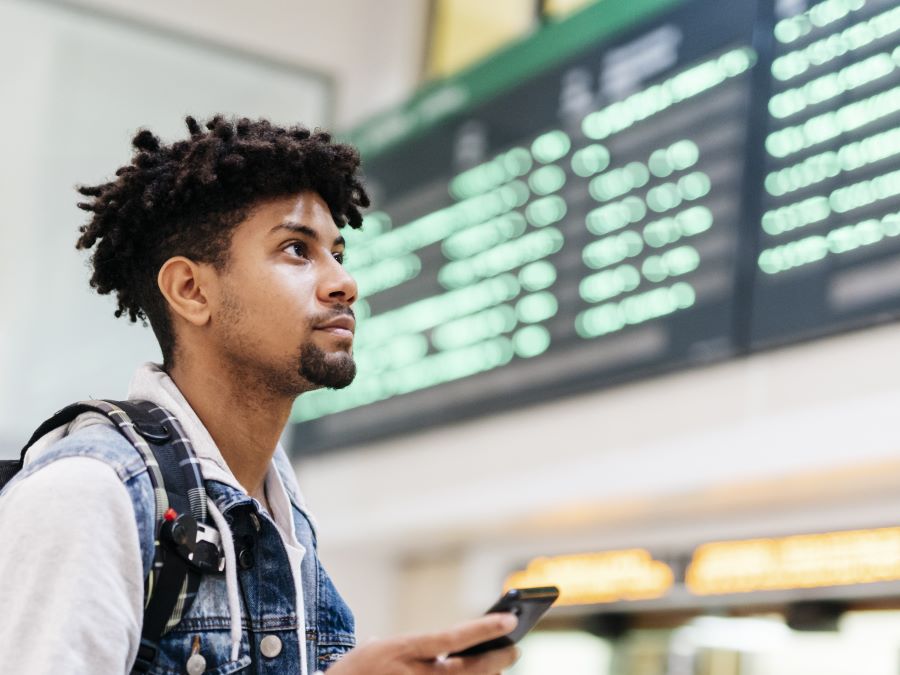
Rising cost of living impacting Australian travel plans according to research from Southern Cross Travel Insurance
14 March 2023 by Laura Sedgwick
83% of Australians travelling this year will need to reduce travel costs as a result of rising cost of living
Key findings from the research include:
- 87% of Australians plan to travel in 2023
- 83% of Australians need to reduce the cost of travel due to the rising cost of living
- 37% are less likely to travel interstate over the next 12 months due to the rising cost of living
- 48% are less likely to travel overseas over the next 12 months due to the rising cost of living
- Trade-offs will include booking cheaper or budget accommodation (39%), taking fewer trips overall (37%), taking a shorter trip (36%) and not taking out travel insurance (10%)
New research announced today from Southern Cross Travel Insurance reveals that the rising cost of living will have a significant impact on Aussie travel plans this year, with more than eight in ten (83%) Australians who plan to travel over the next 12 months admitting they will need to reduce travel costs as a result of the rising cost of living.
The Future of Travel 2023 research was commissioned by Southern Cross Travel Insurance to better understand if travel behaviours in Australia have changed since emerging from the pandemic last year. Australians’ appetite for travel remains high, with nearly nine in ten (87%) planning to travel either domestically or overseas in the next 12 months. However, nearly two in five (37%) of Australians say they are less likely to travel interstate over the next 12 months due to the rising cost of living and almost half (48%) say they are less likely to travel overseas this year for the same reason.
For those who plan to travel over the next 12 months but need to reduce the cost of travel due to the rising cost of living, trade-offs will include booking cheaper or budget accommodation (39%), taking fewer trips overall (37%) and taking a shorter trip (36%).
Interestingly, research conducted last year by Southern Cross Travel Insurance showed a sharp drop in the appeal of budget and hostel type accommodation (22% pre covid down to 13% last year) as people were wary of COVID-19. However, in 2023, consideration for budget accommodation has increased as COVID-19 becomes less of a concern for travellers, with cost of living outweighing any health concerns travellers may previously have had.
The most concerning finding from the research is that 1 in 10 Aussies claim they won’t purchase travel insurance as a way to save costs due to financial pressures brought about by the rising cost of living, and Millennials are twice as likely as Baby Boomers to say they would reduce their travel costs by not buying travel insurance.
“It’s unsurprising, following the lockdowns, that Australians still have a huge appetite to get out there and see the world,” says Jo McCauley, CEO at Southern Cross Travel Insurance. “But the rising cost of living is impacting Australians across all areas and travel is no exception, so it’s understandable Australians will be looking for ways to cut costs while still trying to make those trips happen.”
McCauley stresses Australians need to ensure travel insurance doesn’t get cut as part of that process:
“We know that most Australians consider travel insurance as a high priority for overseas trips with 76% rating it a high priority for international travel but only 49% feel the same way for domestic travel. We’d encourage everyone to ensure they take out travel insurance regardless of where they’re travelling as it could end up saving you significantly in the case of the unexpected. An air ambulance from Bali to Sydney can cost anywhere between $80,000 and $110,000 and not many people can afford a medical bill that size. It’s just not worth taking the risk!”
Travel trends for 2023
The Future of Travel research 2023 shows there is a significant increase (22%) in the proportion of Australians planning to travel overseas this year, compared to the previous 12 months. Half (50%) of Australians plan to travel overseas over the next 12 months, with an average of 1.6 overseas trips planned for an average of 14 days.
“This increase in travel demand could be due to there being less anxiety now among travellers about Covid-19. We’re definitely observing a drop in traveller apprehension in our conversations with customers compared to last year. People seem to be adjusting to life post-pandemic,” says McCauley.
More than three quarters (77%) of Australians plan to travel within the state they live in over the next 12 months, with an average of 2.4 trips planned for an average length of 5 days. Similarly, two in three (67%) Australians plan to travel interstate over the next 12 months, with an average of 1.8 interstate trips planned for an average of 8 days.
Australians’ reasons for travel have changed considerably since we emerged from the pandemic. When considering the holiday experiences, they’d like to enjoy while travelling, the top three cited by Australians who plan to travel over the next 12 months are a family holiday with immediate family (35%), a romantic getaway with their partner (29%) and a cultural immersion (24%). There has been a significant decline in the appeal of holidays with immediate family (35% down from 46%), cultural immersions (24% down from 37%) and back to nature holidays (22% down from 35%) since March 2022. Relaxing and unwinding (51%), seeing family and friends (42%) and experiencing an adventure (31%) are the top three reasons for their next trip.
The research took place in January 2023 and was conducted by YouGov. A nationally representative sample of 1,028 Australians aged 18 years and older took part in the online survey.





